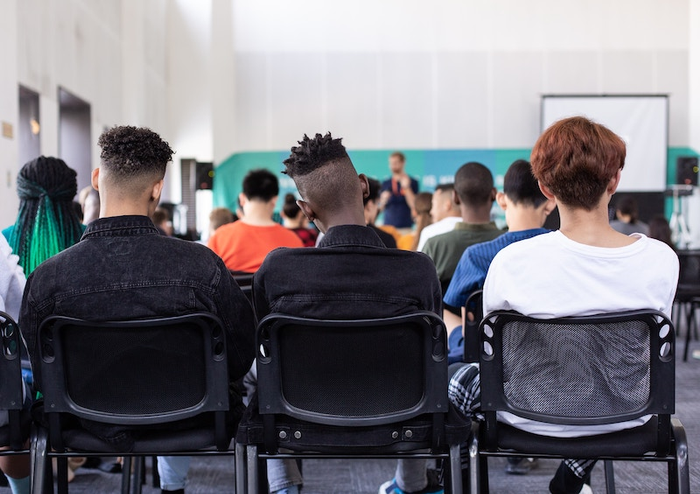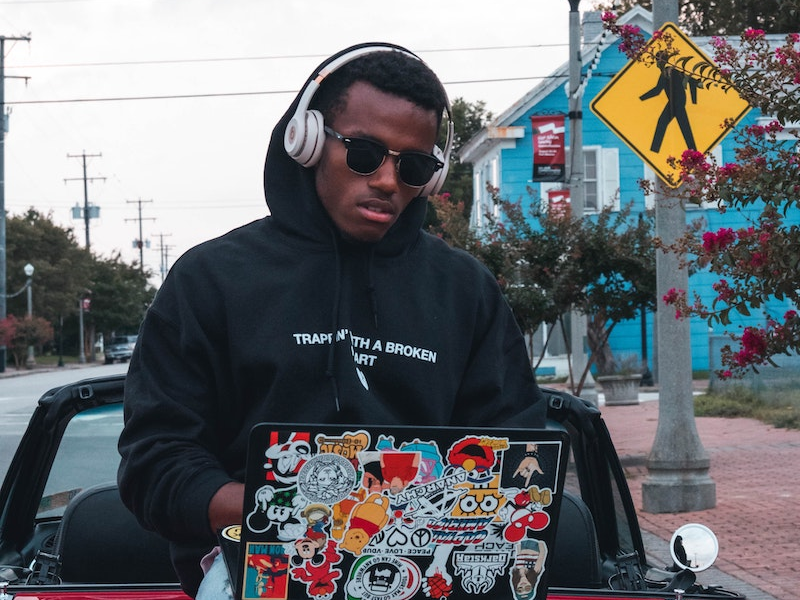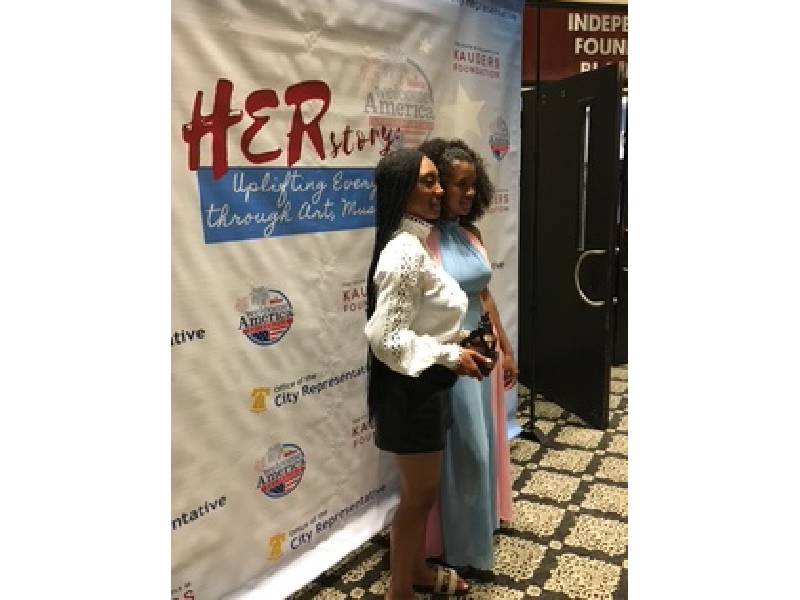Photo by Tnarg
One of my most heartwarming memories from elementary school was the day my gym teacher tossed the planned activities, turned on some hip-hop music and just let us dance. I smile thinking of us all jumping around wild, crazy, happy and free.
Today, as a professor of higher education, I still carry the fondness I had for hip-hop as a child into my professional work. I have spent over two decades developing hip-hop cultural initiatives on college campuses. Hip-hop has made my jobs feel like house parties and turned co-workers and students into homies. But its impact in education is more than personal.
The year 2023 marks the 50th anniversary of the birth of hip-hop culture. People around the world are taking time to reflect on and celebrate hip-hop’s accomplishments.
Educators are not only remembering the obvious ways hip-hop has influenced language and fashion or provided the soundtrack to our study sessions and sports events, but we are also acknowledging how hip-hop has changed education. Drawing from my research exploring the educational benefits of hip-hop culture, what follows are four ways that hip-hop has changed education in America.
1. Made the classroom more engaging
In the early 2000s, hip-hop-based education surfaced in mostly English and language arts classrooms. Some teachers started incorporating hip-hop into lesson plans by using music and rhymes to teach subject matter. The goal was to make learning more stimulating while allowing students to feel culturally connected to the lessons.
An example was educator Joquetta Johnson’s having her students conduct a comparative analysis of Sojourner Truth’s “Ain’t I a Woman” and Queen Latifah’s “Ladies First.”
Hip-hop scholars now refer to this style of teaching as hip-hop pedagogy. Hip-hop pedagogy is the practice of incorporating the elements and values of hip-hop culture into the full educational experience. This includes not only the classroom environment, but also teaching techniques, student-teacher relationships and subject matter.
2. Inspired new schools and community organizations
Not only has hip-hop been integrated into school curricula, but an entire high school was established in St. Paul, Minnesota, to solely focus on hip-hop culture. The High School for Recording Arts is a public charter school that teaches dance, music, art and entrepreneurship to students who have been expelled or pushed out of other schools.
Several new hip-hop community organizations have also been developed. Saving Our Lives, Hearing Our Truths is an Illinois-based community space where girls can rap and write, make friends, dream, draw, think critically, dance, create, speak up, be loud or just be quiet.
In New York City, Cyphers for Justice engages high school youths, incarcerated youths and teachers in a 15-week program in which they learn to use hip-hop creative practices like spoken word and dance performance to research and tackle social issues such as racial justice and school discipline policies.

Photo by Sam Balye on Unsplash
3. Expanded academic fields and jobs in higher education
In 1991, Howard University became the first university to offer a hip-hop course. Since then, colleges across the country, including Harvard, Duke and New York University, have developed hip-hop-related courses. In 2012, the University of Arizona began offering a hip-hop studies minor – the first of its kind at a four-year public university in the U.S.
The creation of hip-hop graduate courses has influenced the scholarship that students produce. For example, hip-hop professor A.D. Carson wrote, performed and produced the 34-song rap album “Owning My Masters: The Rhetorics of Rhymes & Revolutions” in 2017 as his doctoral dissertation at Clemson University. The groundbreaking dissertation received international praise and led to the first peer-reviewed rap album.
Hip-hop scholars are expanding the boundaries of what qualifies as rigorous research, how research is conducted, and what formats should be used for sharing this research with the public. Harvard University’s Hiphop Archive & Research Institute supports hip-hop research and scholarship. There are also hip-hop research conferences hosted at The Ohio State University, Columbia University, Rutgers University and the University of Buffalo, to name a few. These conferences build on the legacy created by the students at Howard University who planned the first university-based hip-hop conference, back in 1991.
These new hip-hop-related professional opportunities allow many scholars to develop academic careers without the pressure to discard their identities as artists or cultural curators. A.D. Carson is now an assistant professor of hip-hop and the Global South at the University of Virginia. At Harvard, the Nasir Jones Hiphop Fellowship, named after the legendary New York rapper Nas, funds exceptional hip-hop scholars and artists.
4. Fostered new mindsets
Hip-hop has always addressed the social issues of the day, from poverty to police brutality. With mental health now a priority in education, some experts are exploring how to use hip-hop culture to support student mental health.
The University of Cambridge recently developed the Hip-Hop Psych Initiative, which aims to use hip-hop lyrics and music to help young people dealing with depression develop more positive images of themselves and their situations. Ian Levy, an associate professor of school counseling at Manhattan College, developed a hip-hop-based counseling framework for schools and other educational settings.
Hip-hop culture is also expanding beliefs about academic achievement, success and professionalism. University of Southern California education professor Christopher Emdin wants educators to rediscover their “ratchet” self. While being ratchet, which originally meant being uncultured, is often rejected within academic settings, Emdin explains that being a “ratchedemic educator” is not about acting out, but acting authentically.
I have spent the past two years researching the ways that hip-hop culture produces its own set of professional practices that encourage drive, creativity, authenticity, honor, community, confidence and commanding attention. These characteristics are valued in many different settings, but hip-hop culture adds a unique flavor and intensity. I call this the Hip-Hop Mindset.
Continuing to evolve
While hip-hop has left an indelible imprint on the field of education, it is not done yet. Hip-hop continues to evolve and gift us with possibilities for what culturally relevant education might look like in the next 50 years. As the saying goes, “Can’t stop, won’t stop.”





